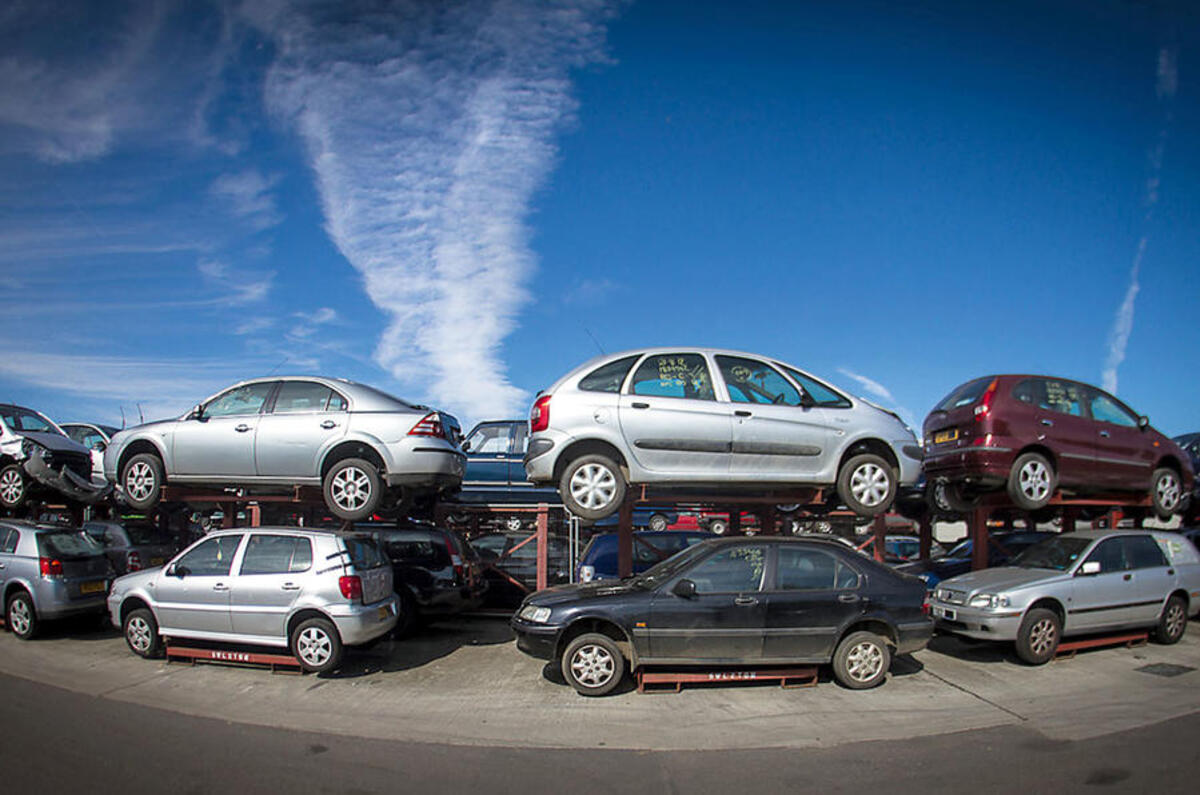The UK government is reconsidering plans to launch a new scrappage scheme to boost car sales and stimulate the economy following the coronavirus lockdown, according to reports.
The car industry was encouraged after it emerged last weekend that the government was planning a scheme to offer new cars buyers incentives of up to £6000 to switch from older petrol and diesel cars to new electric or hybrid vehicles. As first reported by the Telegraph, the government was set to announce the scheme on 6 July.
But the Financial Times is now reporting that there is no guarantee such a scheme will be launched, with four senior officials telling the paper that it is now "very unlikely" such a scheme will be launched. It is understood the Treasury is reconsidering the best way to stimulate the UK economy following the coronavirus crisis and there is a belief that a scrappage scheme would boost overseas manufacturers more than British firms.
With no official word from the government, the new reports could deter potential customers from pushing ahead with buying a new car in the short term. Exclusive research conducted by Autocar sibling brand What Car? shows that 29% of car buyers are already delaying plans to buy a new car post-lockdown in the hope of a taxpayer-backed scrappage scheme.
The What Car? survey of 6632 new car buyers also revealed that nearly 19% have changed the brands they were considering pre-lockdown, and 25% will be moving to a smaller car. Notably, around one in 12 buyers have said they are looking to buy a pure EV as a result of the lockdown, with one in seven likely to opt for a hybrid.
Those figures will provide encouragement that a scrappage scheme focused on low-carbon vehicles could be effective both in boosting sales of such vehicles and getting older and higher-emitting cars off the road.
How could a 2020 scrappage scheme work?
The original government scrappage scheme was introduced in 2010 to boost the economy following the financial crisis. It was based on a £400 million pot, with buyers given £2000 off (£1000 from the government and £1000 from the manufacturer) for scrapping a model aged 10 years or older. Nearly 400,000 cars were bought under the scheme in 10 months. There was some controversy that all cars traded in had to be scrapped, including some roadworthy rare models.
The UK government currently offers a plug-in car grant of up to £3000 for anyone buying a vehicle that produces less than 50g/km CO2, has a zero-emission range of at least 70 miles and costs less than £50,000. But it axed incentives previously offered for buyers of plug-in hybrid vehicles.












Join the debate
Add your comment
Pointless
I think it would be pointless to have a car Scrappage scheme which encourages people to buy cars which are mostly made abroad. The Governnent should focus on boosting the U.K. economy not sucking in imports and a deep cut in VAT for the leisure and hospitality industries would encourage people to get out and spend.
Mark_N wrote:
si73 wrote:
Yup reduce VAT on non essential purchases like clothing, white goods electronics etc, get people out shopping, maintaining social distancing of course, cheaper shopping sprees, stopping off for a coffee, a cheaper meal out or night out will all help kick start the economy by giving people the confidence and ability to spend.
Scrappage scheme 2010: How Hyundai sold 39,000 i10s
Encouraging
It's very encouraging that the brexiloons started to realise we don't manufacture much and we import a lot from the EU. A bit to late but better than never.